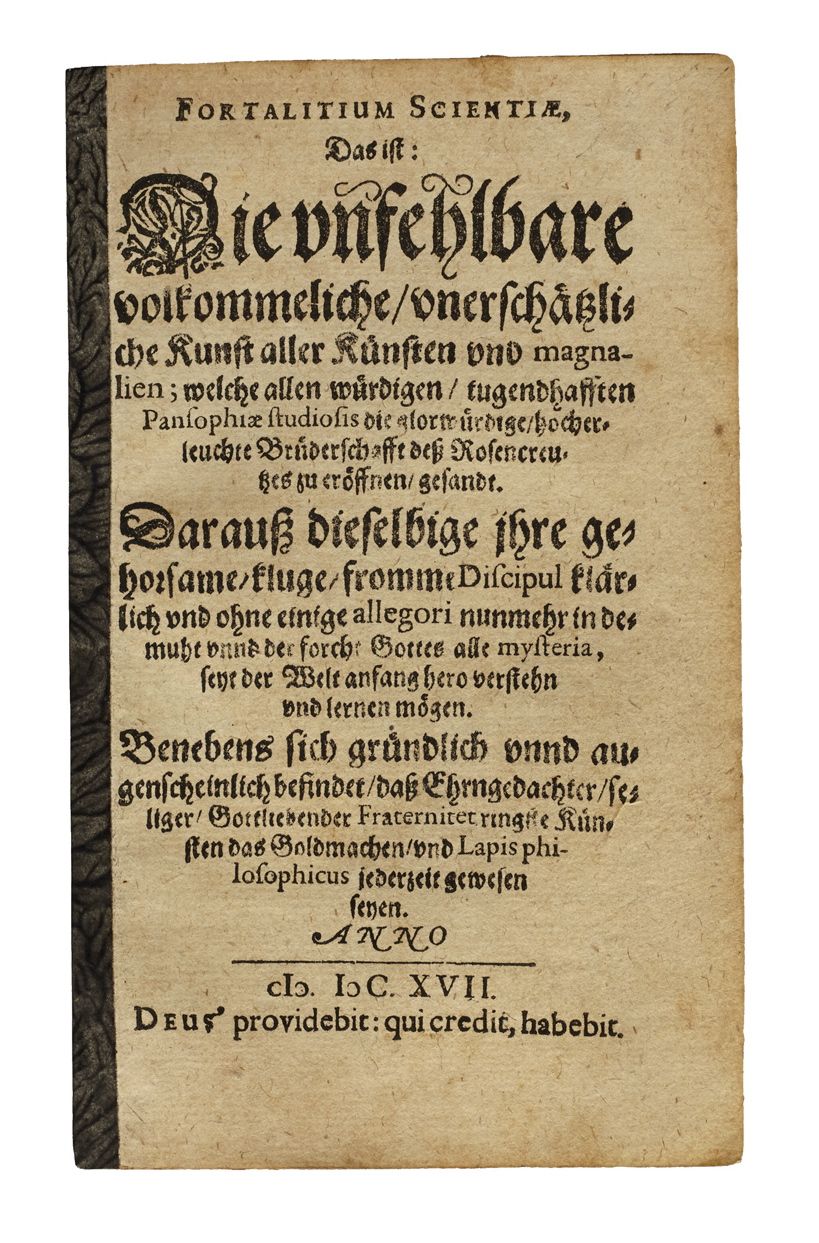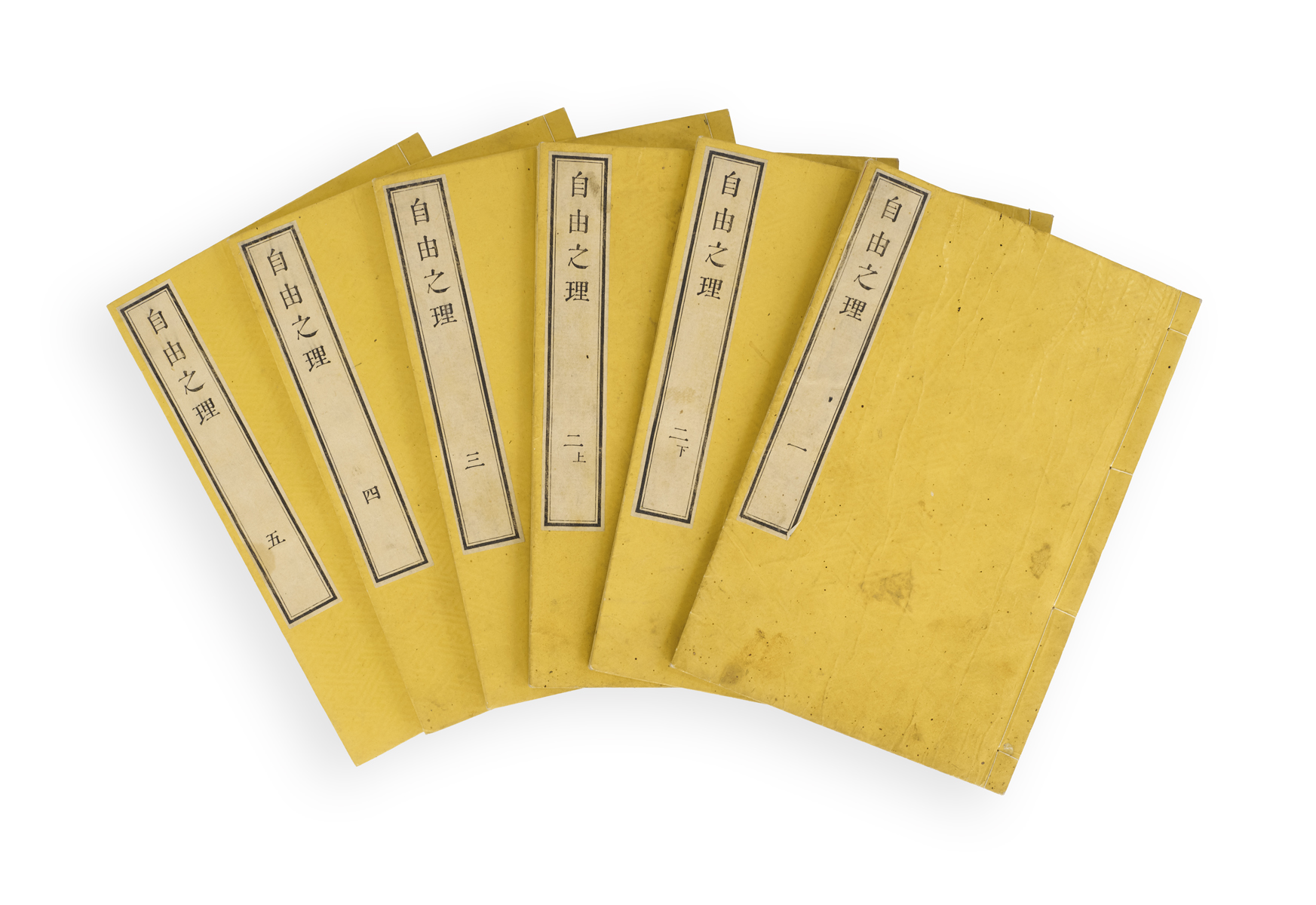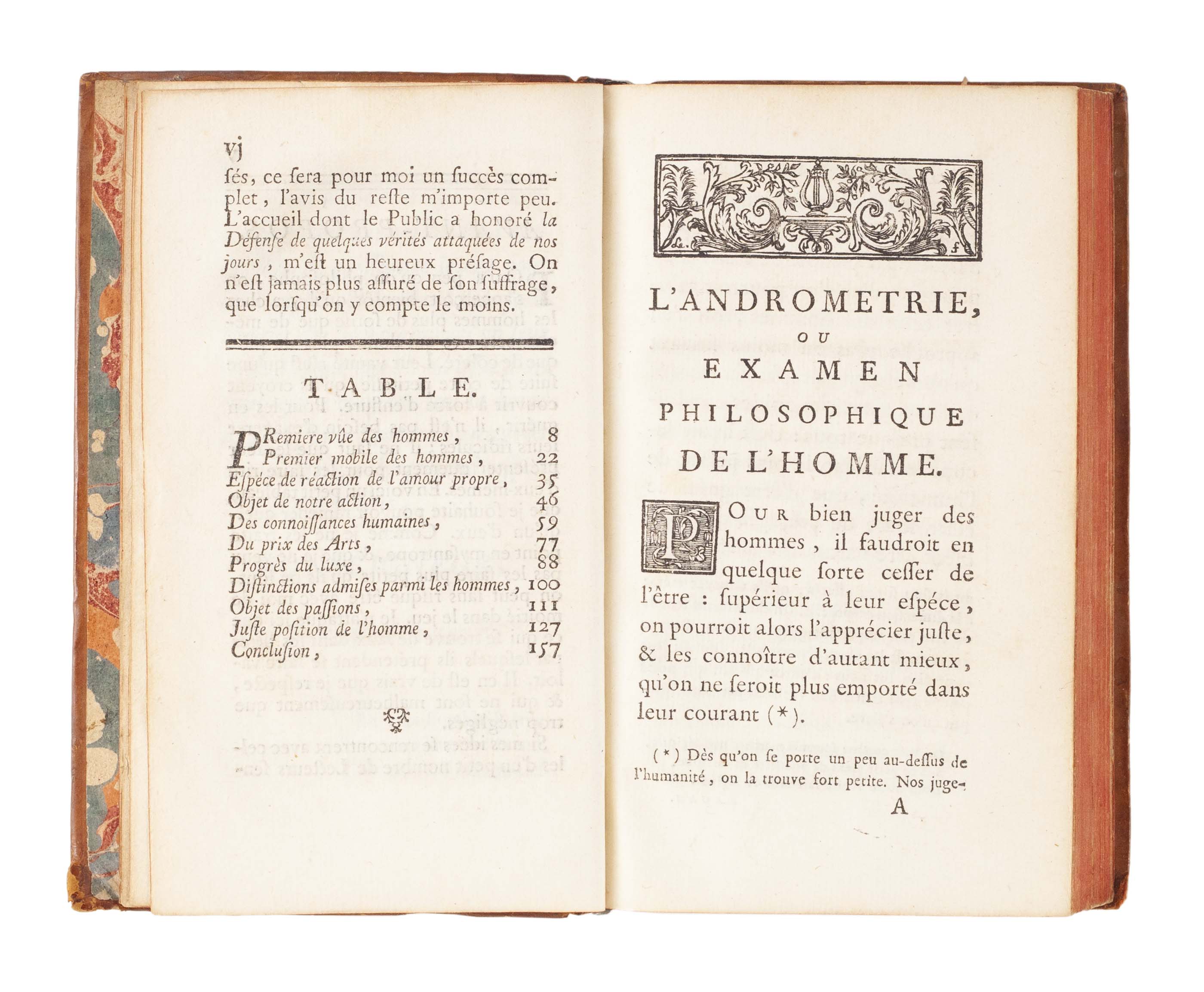
‘A TRAGEDY WITH JESTING WORDS’
[GRICK, Friedrich.]
Fortalitium scientiae, das ist: die unfehlbare, volkommeliche, unerschätzliche Kunst aller Künsten und Magnalien, welche allen … Pansophiae studiosis … die Brüderschafft des Rosencreutzes zu eröffnen gesandt.
[Nuremberg,] 1617.
8vo, ff. [23], [1 (blank)]; a very good copy, disbound, with a later pastepaper spine; housed in a red cloth clamshell box.

Added to your basket:
Fortalitium scientiae, das ist: die unfehlbare, volkommeliche, unerschätzliche Kunst aller Künsten und Magnalien, welche allen … Pansophiae studiosis … die Brüderschafft des Rosencreutzes zu eröffnen gesandt.
First edition of this provocative tract on Rosicrucianism and alchemy presenting arguments both for and against the Order, purportedly written by the 562-year-old fictitious Rosicrucian, Hugo de Alverda.
Friedrich Grick, private tutor at Altdorf, prolific pamphleteer, and author of more than fifteen Rosicrucian tracts, was perhaps the most peculiar participant in the catalogue of publications about the Brotherhood, with the present work following swiftly on the heels of the two Rosicrucian manifestos published between 1610 and 1615, Fama Fraternitatis Rosae Crucis and Confessio Fraternitatis. His publications conspicuously alternate between defending Rosicrucianism (under the pseudonym of Ireneus Agnostus) and attacking it (as F.G. Menapius). These conflicting views at times appear alongside one another, as in the present collection. While his previous work appears to treat the Rosicrucian production of gold allegorically (referring to spiritual love), in Fortalitium scientiae he ties the Brotherhood explicitly with alchemical experimentation, stating his belief in the Philosopher’s stone, the supposed origin of his extraordinary lifespan. Yet in other passages he offers nonsensical alchemical formulae, in clear mockery. Including three letters of the pseudonymous F.G. Menapius attacking Rosicrucianism, the collection might be read as a learned debate or a text in intellectual conflict.
In later life, Grick elucidated his prevarication, writing “The author of the Fama and Confessio is a great and illustrious man whom I originally took for a mad or capricious innovator; for this reason I set myself against him and wrote the Fortalitum Scientiae but when my first writing saw the light I learned that I had written a tragedy with jesting words and, at least with the curious, had provoked judgement and condemnation” (trans. McIntosh, pp. 35-36).
Wolfstieg, Bibl. der freimaurerischen Lit., 42322. See McIntosh, The Rosicrucians: The History, Mythology, and Rituals of an Esoteric Order (1998).

